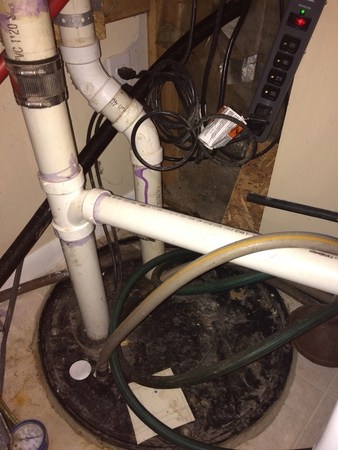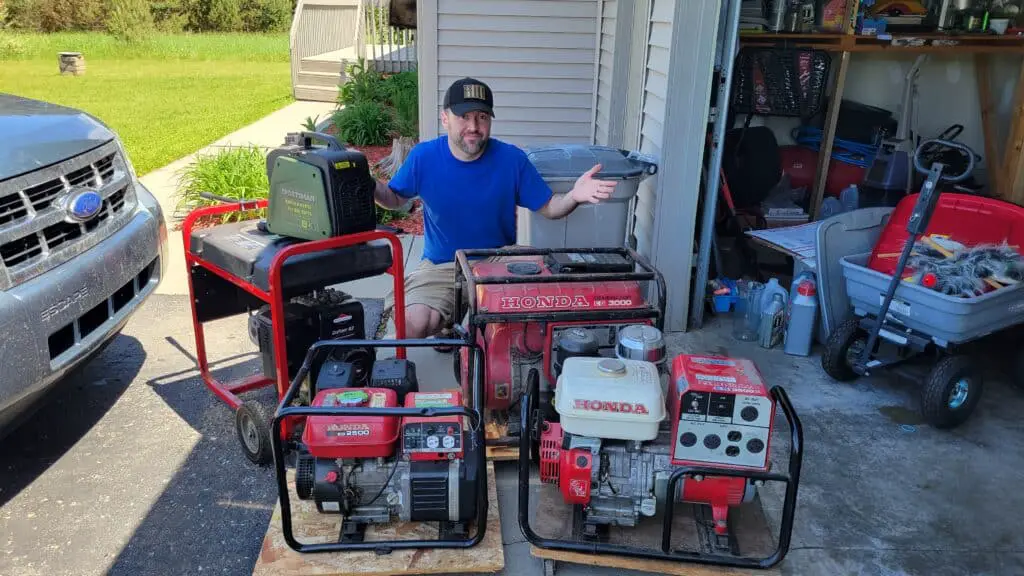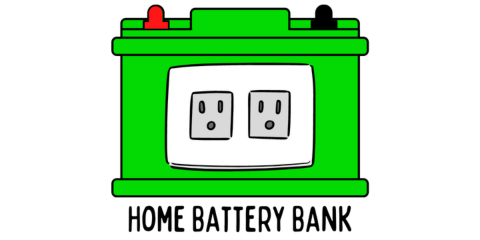When a storm hits and the power goes out, you may find yourself wondering if a portable generator could be the perfect solution to keeping your sump pump running and your basement dry. We’re going to dive into the compatibility of portable generators and sump pumps, weigh the pros and cons, and provide you with useful tips to ensure successful operation during a power outage.
Matching Your Sump Pump and Generator
You can certainly use a portable generator to power your sump pump during a power outage, but it’s essential to select the right generator for the job. In order to do this, you need to first consider the power requirements of your sump pump and ensure the generator can provide sufficient wattage without overloading the generator itself.
How to determine wattage requirements: Check your sump pump’s label or user manual to find its power consumption, typically measured in watts (W) or amps (A). If it’s listed in amps, multiply that number by your home’s voltage (120V) to convert it to watts. Don’t forget to account for the starting watts, which can be two to three times higher than the running watts.
| Sump Pump Size | Running Watts | Additional Starting Watts |
|---|---|---|
| 1/3 HP | 800 | 1,500 |
| 1/2 HP | 1,000 | 1,900 |
How to choose the right generator: Portable generators come in various sizes and power capacities. Select a generator that can handle both the starting and running wattage of your sump pump, along with any other essential appliances you may want to power during an outage. Be sure to consider not only the additional running watts of the other essential appliances, but the starting watts as well!

The Pros of Using a Portable Generator
There are several advantages to using a portable generator to power your sump pump during a power outage:
- Flood prevention: With a portable generator, your sump pump can continue to operate, preventing water accumulation in your basement and potential flood damage.
- Portability: As the name suggests, portable generators are easy to move and store, allowing you to use them for other purposes or in different locations.
- Versatility: A portable generator can power not only your sump pump but also other essential appliances or tools, such as refrigerators, personal electronics, heaters, and lights.
The Cons of Using a Portable Generator
Despite their advantages, portable generators also come with some drawbacks:
- Fuel dependency: Portable generators typically run on gasoline or propane, which may not be readily available during an emergency, especially if supplies run out or stores are closed.
- Maintenance: Generators require regular maintenance, such as oil changes and fuel stabilizer treatments, to ensure their reliability and longevity.
- Noise: Portable generators can be noisy, which may be a concern for you or your neighbors, especially during extended power outages.
Safety Precautions
If you decide to use a portable generator to power your sump pump during a power outage, it’s crucial to follow proper safety guidelines:
- Never run a generator indoors or in an enclosed space, such as a garage, as they emit carbon monoxide, a deadly gas that lulls you unconscious. Operate the generator outdoors, away from windows, doors, and vents.
- Avoid overloading the generator by connecting too many appliances or exceeding its wattage capacity, which can damage the equipment, the generator, or pose a fire risk.
- Use heavy-duty extension cords rated for outdoor use, and ensure they are in good condition, without any frays or damage.
- Keep the generator dry by operating it under a canopy or other cover, but ensure there is adequate ventilation since generators are air cooled.
- Store stabilized fuel for the generator in approved containers and away from the generator or any other heat sources.

Alternatives to Portable Generators
If you think that a portable generator isn’t the right fit for your needs, consider these alternatives (or add them to your arsenal as backups) to keep your sump pump running during a power outage:
- Battery backup sump pump: A battery backup sump pump can provide power to your primary sump pump when the electricity goes out. These systems typically include a battery, charger, UPS, and backup pump, which can run for several hours or even days, depending on the battery capacity and pump usage.
- Water-powered sump pump: If you have a reliable municipal water supply, a water-powered sump pump (not an affiliate or recommendation, just so you can see more information) can serve as a backup during power outages. It uses the water pressure from your home’s water supply to pump out water from your basement, without the need for electricity. However, it will not be suitable for homes with well water or low water pressure.
- Home standby generator: A home standby generator is a more powerful and permanent solution, designed to automatically start when the power goes out. It runs on natural gas or propane and can provide electricity to your entire home, including your sump pump. While they are more expensive and require professional installation, they offer the advantage of seamless backup power during an outage.
Using a portable generator to power your sump pump during a power outage is a viable option, provided you choose the right generator and follow proper safety precautions. However, you should also consider alternative backup power solutions, such as battery backup sump pumps, water-powered sump pumps, or home standby generators, depending on your specific needs and circumstances. Having more than one ready-to-implement plan to combat a flooded basement is a very good idea!
By evaluating the pros and cons of each solution and taking the necessary safety measures, you can ensure that your sump pump continues to protect your home from water damage, even when the power goes out.

